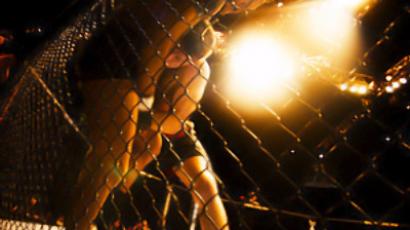Corporal punishment is illegal but thrives in Indian classrooms
Physical penalties are still widely used by teachers in India, despite being illegal, but the story of a teenager who committed suicide after being caned at school is pushing India to criminalize corporal punishment.
The prevalence of corporal punishment in schools is one of India's worst-kept secrets. But the recent suicide of 13-year-old Rouvanjit Rawla has brought the practice out into the open.
A student at the prestigious La Martiniere for Boys school in Kolkata, Rouvanjit, hanged himself at home earlier this year after being caned at school. After spending months chasing the school for answers, his father Ajay Rawla has filed a police complaint against the three teachers he says were involved.
“I think they were after him for a long while, and so long as he was getting an individual battering, he was able to take it. But when they all descended on him that day, I don't think his young mind could handle that much animosity, angst, humiliation and alienation from his friends,” Rawla says.
The school's principal has admitted caning Rouvanjit, but says this was not responsible for his suicide. The case has set off a public outcry, largely because it occurred in one of India's oldest and most elite schools. But most cases of corporal punishment take place in government-run schools and go largely unrecorded.
10-year old Monty is often beaten when he doesn't complete his homework on time.
“The teacher tries to teach us. But when we don't learn she hits us, and I sometimes cry when I get hit,” complains Monty.
“It's very important to have the sensitivity to understand what is going on in the child's mind, or what is happening when a child does not complete his work on time,” Dr. Sameer Malhotra said. “And unless we address those issues, putting the blame on the child or hitting the child with a stick really doesn't serve any purpose. Either the child will become too used to this kind of punishment and the effect will wear off, or a child who is sensitive and anxious by predisposition will feel very vulnerable,” the psychiatrist warns.
A Supreme Court judgment in 2000 prohibited corporal punishment in all its forms in India. But old habits die hard. Many teachers, and even some parents, still believe in the need for physical discipline.
“If a child doesn't do his homework, even after reminding him repeatedly, then we have to discipline him,” Shanta Sahai, a teacher, confesses. “We do not want to hit them, but we get angry sometimes, because we are taking so much effort to teach them, so sometimes we are forced to hit them.”
With over 50 children in a class, teachers often resort to beatings in order to control the large numbers.
“You hear phrases like ‘it's a theatre of war out there.’ Teachers are sometimes frightened to go into class because there is such a lack of respect, and it's very hard to 'control' the class,” education consultant Abha Adams reveals.
“But discipline is a two-way process. So not only do you train the teachers, you've also got to make the students understand that there is a code of conduct.”
But for one loving father, there can be no arguments for corporal punishment.
“There's a law against it, there's no debate. If you let people hit your kids, there will be a monster there who will take out his frustration on your child and you will not be able to save your child,” Ajay Rawla grieves. “It's not open to discussion. Nobody has the right to touch your child. Nobody. God gave them to us to love, not for some guy to beat them up.”
One father's crusade for justice is putting the spotlight on corporal punishment, which is illegal, but still common in Indian schools. One wonders how many children will have to suffer till more humane methods of discipline are enforced.














